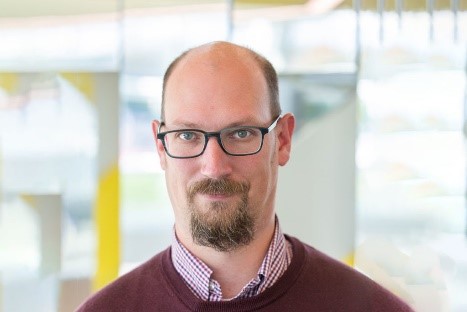- Literature and background review including:
- existing design and manufacturing process
- Reverie internal best practices
- relevant patents and competing products
- industry best practice for automated manufacturing
- Baseline business evaluation of existing manual process and freight costs
- Study of which parts of the process are optimal for automation vs human operation.
- Design for hardware and software for automated assembly of quarter scale foundation.
- Evaluation of current foundation design and proposal of design modifications for automated assembly.
- Selection of necessary hardware and software required such as robotic arms, computer vision cameras, sensors, etc.
- Business case evaluation
- Simulated automated assembly process using no more than 4 people.
- Modification of scale EZ-Lift™ foundation demonstration device to support increased automation of assembly.
- Functional prototype of automated assembly device on quarter scale foundation
- Virtual and or mixed reality demonstration of hybrid automated assembly method.
- Evaluate automating quality inspection using computer vision AI technology.
Mechanical Design (2 students)
Specific Skills: Techniques for fast prototyping and design for manufacturing. Good hands-on skills for development. Completion of any of the following courses is a plus: ME305, ME350, ME450, ME452, ME483 Likely Majors: ME, ROBRobotic Programming (2 Students)
Specific Skills: Control systems and simulations using ROS. Evaluation and specification of robotic tools and processes for automating assembly including hardware and software, cameras, data collection, etc. Work will be done in Gazebo and ROS. Likely Majors: ROB, CS, EE, ECEOperations Analysis (2 Students)
Specific Skills: Analysis of manufacturing operations. Engineering to maximize profits and minimize costs. Likely Majors: IOEBusiness Case Development (1 Student)
Specific Skills: Analysis of business case for design and manufacturing. Must also have experience in or be willing to learn coding and other tech aspects of the project. EECS 281 (or equivalent) is required or dual major in ME, ROB, CE, EE. Likely Majors: CS, BBA, IOEAdditional Desired Skills/Knowledge/Experience
If you have any of these characteristics, highlight them on your Experience and Interest Form and talk about them in your (optional) one way video interview.
- Ability to navigate through challenging situations and approach them with a logical and systematic mindset.
- Creativity to come up with innovative solutions and designs, think outside the box, exploring unconventional approaches as needed.
- Interest in designing the best possible consumer products.
- Experience with video gaming, 3D graphics
- Experience with augmented/virtual/extended reality environments.
- Experience with Gazebo, and/or ROS. Please indicate your level of experience in your application materials
- Understanding of different manufacturing processes (e.g., machining, welding, assembly) and their automation potential.
- Proficiency in programming languages like Python, C/C++, or Java for controlling robotics systems.
- Understanding of mechanics, kinematics, and dynamics. Familiarity with CAD software (e.g., SolidWorks preferred) for designing mechanical components.
- Great hands-on skills; interest in fast prototyping. We particularly value experience working on engineering competition teams.
Sponsor Mentor

Kushan Gajjar
Senior Mechanical Engineer
Kushan Gajjar has been with Reverie in the role of Mechanical Engineer since 2016. He earned a master’s degree in mechanical engineering from the University of Michigan, Ann Arbor, and was previously a member of Reverie’s MDP team from 2014 to 2015. Currently, his main responsibilities include developing new designs for adjustable beds and flat foundations, as well as overseeing Reverie’s supply chain in Asia.Faculty Mentor

Peter Gaskell
Peter Gaskell is a Lecturer in the Robotics Department. In addition to teaching, he designs and builds robotics platforms for both education and research. He has worked in a wide array of research labs in diverse fields such as Astrophysics, Atomic Optics, Nanoelectronics, Materials Science and Robotics. He is the co-founder and principal designer for a professional audio company and has designed equipment used to record multiple Grammy Award winning albums. He is also on the technical advisory board for a Montréal based start-up focused on using nanomaterials to improve sound quality and efficiency of transducers for the consumer electronics industry. He holds a BS in Physics from the University of Oregon and earned his MEng and PhD in Electrical Engineering from McGill University where his dissertation focused on advanced nanomaterials for lithium-ion electric vehicle batteries.Weekly Meetings: During the winter 2025 semester, the Reverie team will meet on Mondays 1:30 – 3:30pm in the FMCRB.
Work Location: Most of the work will take place on campus in Ann Arbor. Some testing and integration work will take place at the Reverie site in Bloomfield Hills, Michigan. (MDP will provide transportation)
Course Substitutions: CE MDE, ChE Elective, EE MDE, CoE Honors, IOE Senior Design, MECHENG 490, ROB Flex Tech, SI Elective/Cognate
Citizenship Requirements: This project is open to all students. Note: International students on an F-1 visa will be required to declare part time CPT during Winter 2025 and Fall 2025 terms.
IP/NDA: Students will sign IP/NDA document(s) that are unique to Reverie.
Summer Project Activities: No summer activity will take place on the project.
Learn more about the expectations for this type of MDP project
